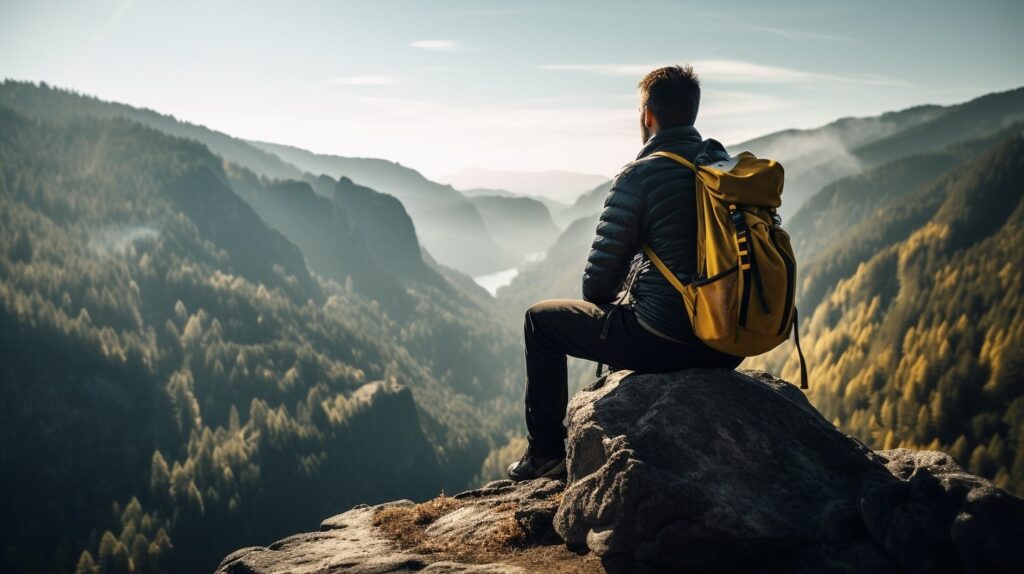Solo camping – an experience like no other. It’s just you, the great outdoors, and your wits against the elements. Solo camping is a chance to unplug, recharge, and truly connect with nature. But, of course, safety and preparation are paramount when you’re venturing into the wilderness on your own. So, let’s break it down and explore the tips and tricks that will make your solo camping adventure not just memorable, but also safe and enjoyable.
1. The Quest for the Perfect Campsite: Where to Begin
Alright, fellow adventurers, if you’re gearing up for a solo camping odyssey, the first piece of the puzzle is choosing the ideal campsite. This decision can make or break your outdoor escapade, so let’s dive into the nitty-gritty of it. Especially when you’re dipping your toes into the solo camping world, it’s wise to start with well-established campgrounds. Here’s why:
Amenities Aplenty:
Think of these campgrounds as your home base, complete with all the creature comforts you could wish for. They often offer amenities like clean water sources, restrooms, and designated fire pits. You’re not exactly roughing it to the extreme, but that can be a good thing when you’re venturing solo for the first time.
Safety in Numbers:
One thing that sets these campgrounds apart is the human element. Park rangers are your wilderness concierges. They’re there to assist and offer guidance, making you feel like you’ve got a safety net even when you’re flying solo. Whether you need information about local flora and fauna or help in an emergency, these well-informed and experienced folks have your back in a great number of forests and campgrounds.
Meet Fellow Adventurers:
Solo camping doesn’t mean complete isolation if you don’t want it to. Campgrounds are often bustling with fellow outdoor enthusiasts. You can swap stories, share tips, and maybe even find a camping buddy for your next adventure. Connecting with other campers can grow friendships that last a lifetime.
Convenience, But Not Without Challenge:
These campgrounds offer a mix of convenience and challenge, striking that perfect balance for solo campers. You have the comfort of knowing you’re not entirely on your own, but you’re still exposed to the elements and the beauty of the great outdoors.
Opt for a well-established campground. It’s like easing into the deep end of the pool rather than taking a blind leap into the unknown. You’ll have the essentials at your fingertips, a safety net in the form of park rangers, and the chance to mingle with like-minded adventurers. It’s the perfect first step in your solo camping quest.
2. The Master Plan: Your Blueprint for Solo Camping Success
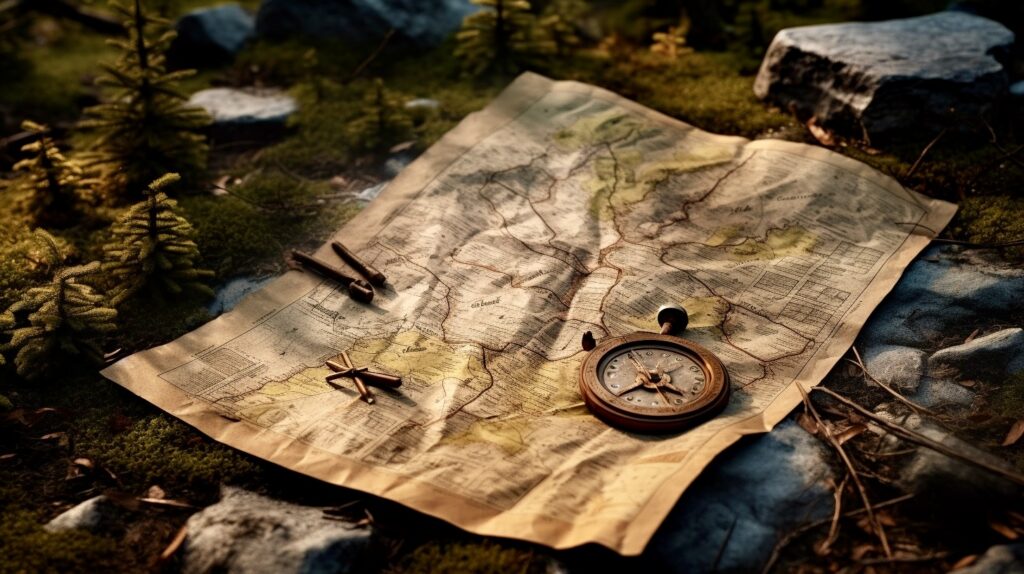
When it comes to solo camping, there’s no such thing as over-planning. The key to a safe and enjoyable solo adventure is meticulous preparation. So, let’s talk about planning like a pro, because the more you plan, the smoother your journey will be.
Share Your Plan:
Before you embark on your solo camping escapade, ensure someone you trust knows the ins and outs of your adventure. Share your detailed itinerary, your expected return date, and the precise location of your camping spot. It’s your built-in safety net. Having someone in the know means that if, for any reason, you find yourself in a tricky situation, there’s a lifeline back to civilization. They’ll know where you are and when to expect you back. It is the ultimate fail-safe for solo camping.
Triple-Check Your Gear:
Solo camping means you’re on your own when it comes to gear. So, triple-check that you’ve got everything you need. Lay out your gear, create checklists, and scrutinize every item. From the right tent and sleeping bag to the essentials like a cooking stove and first-aid kit, make sure you’re well-prepared. It’s like pre-flight checks for a pilot – attention to detail is crucial.
Weather Wisdom:
Mother Nature can be unpredictable. Check the weather forecast for your chosen camping dates. This isn’t just for comfort; it’s for safety. You want to be ready for whatever conditions may come your way, whether that’s sunshine or a surprise storm. Think of it as staying updated on the latest Campsite Authority articles – you’re keeping an eye on the forecast to optimize your experience. Having an internet device that can connect to satellite is a great thing to have. It can connect you to the internet or to emergency services in case of a dire situation.
Emergency Protocols:
Solo camping is all about self-reliance, but that doesn’t mean you shouldn’t have a plan in case things go awry. Have an emergency protocol in place. Know what to do in case of an injury, bad weather, or any other unexpected situations. This is where that satellite-enabled device could save you. Staying in range of local cell towers will also allow you to stay connected to the outside world with most internet devices.
3. Gear Up Like a Pro: The Art of Smart Packing
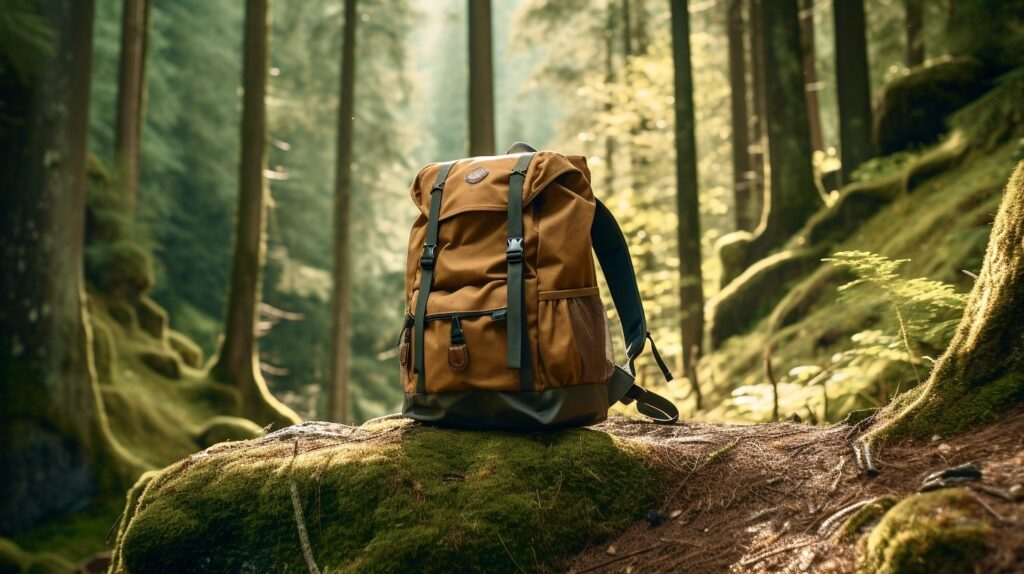
When you’re out in the wild on your own, every ounce counts. You want your gear to be as efficient and versatile as possible, but there are a few things you should never compromise on, especially when it comes to your safety.
Prioritize Lightweight and Versatile Gear:
Efficiency is the name of the game. Opt for gear that’s lightweight and versatile. Think of it as having a multi-tool in your camping arsenal. Lightweight equipment won’t weigh you down as you navigate the wilderness, and versatility means you can adapt to different situations without carrying extra baggage. From a compact, all-weather tent to a versatile cooking stove, the right gear will make your solo journey a breeze.
Essential Safety Gear:
When it comes to essentials, there’s no room for skimping. A well-stocked first-aid kit is like your lifeline in case of injury or illness. It should contain items to treat cuts, burns, sprains, and other common outdoor injuries. You should also have a basic knowledge of how to use the items in your kit.
Extra clothing is another non-negotiable. Even if the weather forecast looks promising, nature can be unpredictable. An extra layer can mean the difference between comfort and discomfort. You don’t always need it, but when you do, it’s a lifesaver.
Navigation Tools:
Don’t wander off without navigation tools. A map and compass (and the skills to use them) are like your GPS in the wilderness. They’ll help you stay on course, even in areas with no cell signal. Think of it as the ultimate tech gadget for exploration – it provides you with direction and keeps you on track. Many smartphones also come with compasses pre-installed, which can lighten your load even more. Just make sure that these compass apps don’t require a solid internet connection to function properly.
Stay Connected:
Safety in the wild isn’t just about physical gear – it’s about communication too. Invest in a reliable communication device. A satellite communicator or a personal locator beacon (PLB) is like your lifeline back to civilization. It can be your ticket to help in case of an emergency. It’s like being connected to the internet when you’re out of cell range – it keeps you in touch with the outside world.
Prioritize lightweight and versatile gear to keep your load manageable, but never compromise on essential safety gear. A first-aid kit, extra clothing, navigation tools, and a reliable communication device are your lifelines in the wilderness. The right tools can make all the difference.
4. Master the Art of Wilderness Survival: Your Ticket to Self-Sufficiency
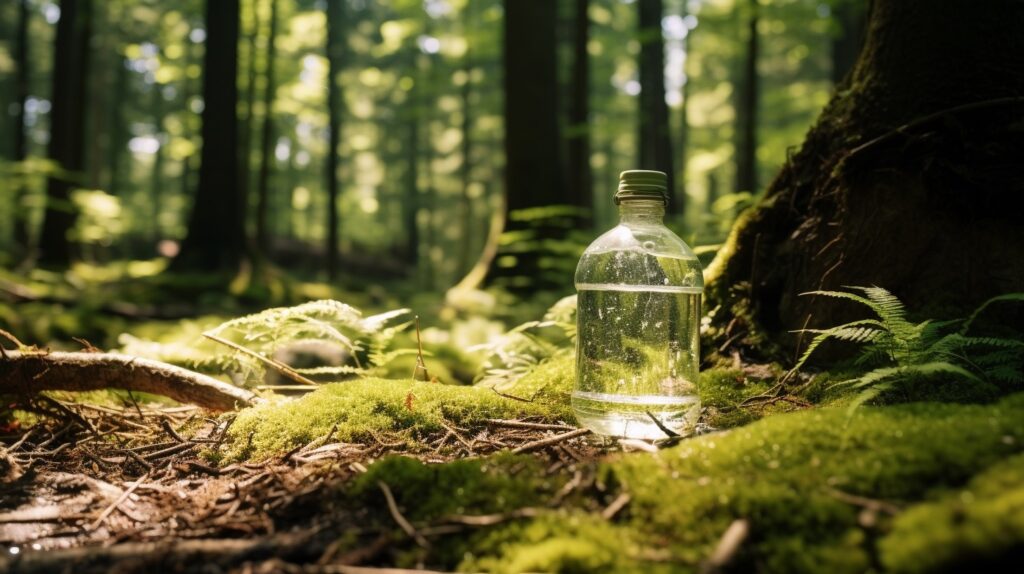
To thrive in the wild, you’ve got to know the basics of survival. It’s just like expanding your toolkit to tackle a new project. Here are some essential survival skills you should master for your solo camping adventure:
Purify Your Water:
Clean drinking water is your lifeblood in the wilderness. Whether you’re hiking, setting up camp, or just taking a breather, you’ll need to stay hydrated. Knowing how to purify water from natural sources is essential for solo camping. Water filters, purifying tablets, or boiling water are your solutions to ensure every sip is safe.
Build a Fire:
Fire isn’t just about staying warm and cooking food – it’s a survival tool. Fire can signal for help, deter wildlife, and boost your morale. Learn how to build a fire safely using available resources. Like knowing how to pitch a tent – you’re solving problems with the tools at hand. Dry seasons and areas will always be the best for building fires, so make sure to solo camp when the weather is nice and dry.
Surviving in the wild is all about preparation, knowledge, and resourcefulness. Invest in learning these survival skills before your solo camping adventure.
5. The Wild Side of Solo Camping: Mastering Wildlife Wisdom
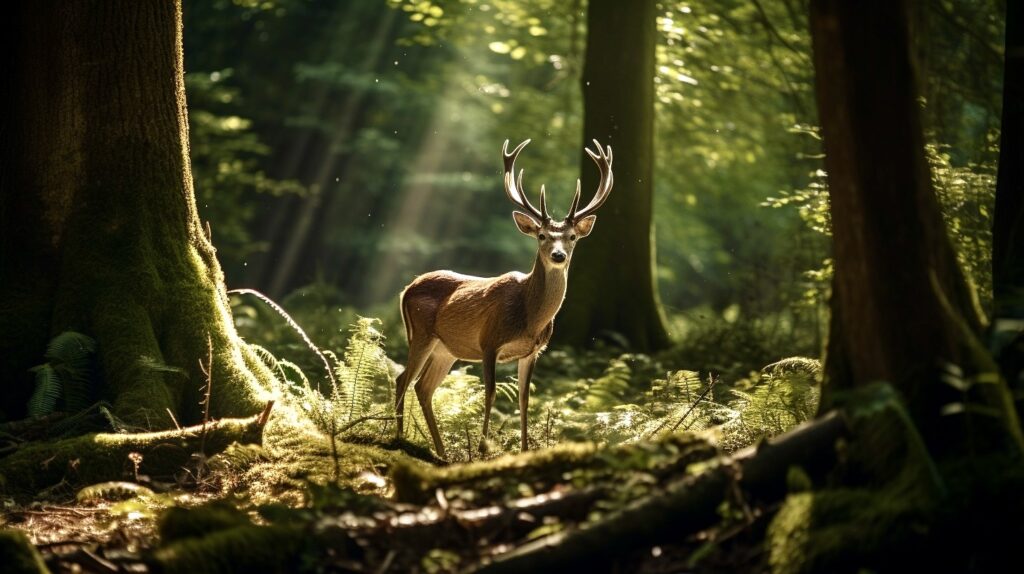
When you’re out in the wilderness on a solo camping escapade, you’re bound to have some close encounters with the local inhabitants. And let me tell you, it’s part of what makes the experience both thrilling and nerve-wracking. When you’re sharing the great outdoors with creatures big and small, knowledge and preparation are your best tools.
Know Thy Neighbors:
First things first, you’ve got to get acquainted with your wild neighbors. Research the animals native to the area you’ll be camping in. Learn about their habits, their habitats, and their behaviors. Understanding the anticipating the actions of wildlife will keep you one step ahead when venturing out alone.
Respect the Distance:
One rule of thumb when it comes to wildlife is simple: maintain a respectful distance. Keep your curiosity in check and observe animals from afar. Approaching too closely can be risky for you and stressful for them. You should strive to blend into your environment. Stay unseen so you can gaze at beautiful wildlife from afar.
Store Food Properly:
Food is like currency in the wild. When you’re solo camping, ensure your meals are stored securely. Lock up your food in bear-proof containers or hang it in a tree away from your sleeping area. Proper food storage not only keeps wildlife at bay but also helps you avoid unwanted visitors in the middle of the night.
Prevent Surprises:
Make some noise! Announce your presence to wildlife as you move through their territory. Most animals prefer to avoid humans, and your noise will alert them to your presence. It’s like setting an alarm system for your home – you want to know if something’s coming your way.
Stay Informed:
Stay informed about any seasonal wildlife patterns in the area you’re camping. For example, certain seasons might bring an increase in bear activity due to their search for food before hibernation. Knowing these patterns is vital for safety and for avoiding unwanted contact with potentially dangerous or deadly animals.
Solo camping is all about respect, awareness, and coexistence with the creatures that call the wilderness home. Think of it as entering a new tech community – you want to be a responsible and respectful member. So, embrace your wildlife wisdom, stay vigilant, and enjoy the wild side of solo camping. It’s all part of the adventure, after all.
6. Trust Your Gut: Your Instincts as the Ultimate Navigator
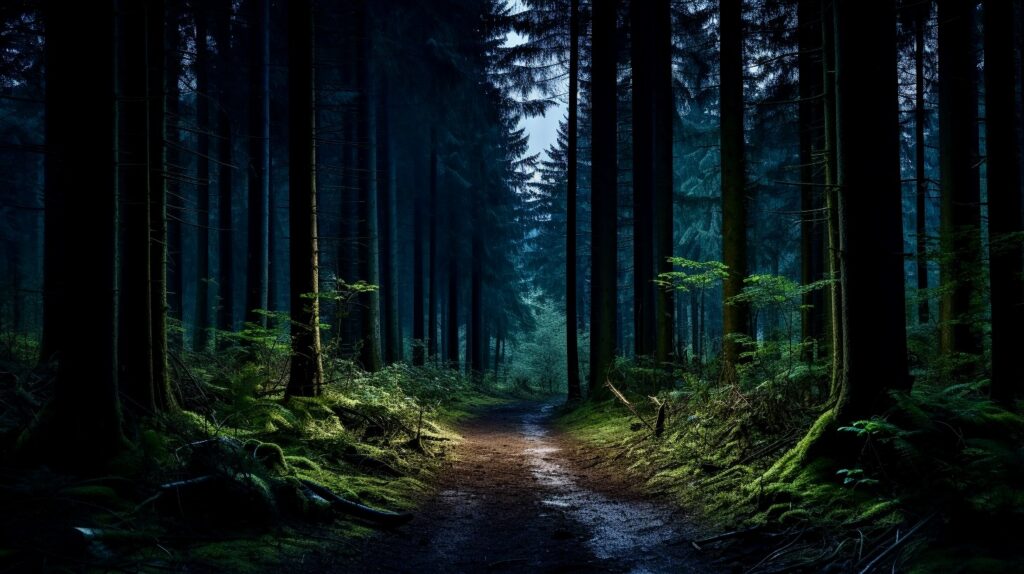
In the wild, there’s one piece of equipment that’s far superior to any gadget or gear: your instincts. It’s like having a sixth sense that’s finely tuned to survival. Let’s talk about why trusting your gut is your ultimate guide in the great outdoors.
The Power of Intuition:
Your gut feeling is like the most advanced AI in your camping arsenal. It’s based on years of evolution and experience, finely tuned to detect even the slightest changes in your environment. When something doesn’t feel right, your instincts are your first line of defense.
The Cautionary Tale:
When you’re in the wilderness, it’s crucial to be cautious. If your gut tells you that something’s off – whether it’s a change in the weather, an unusual noise in the night, or a sudden feeling of unease – take it seriously. It’s like an amber alert on your phone – you wouldn’t ignore it, right?
Don’t Underestimate Your Intuition:
You might not have years of survival training under your belt, but your instincts are a powerful ally. They’re the ultimate support – always there when you need them. If you feel that a trail is leading you in the wrong direction or that a campsite doesn’t seem safe, trust that feeling and take action to avoid potential danger.
Caution Over Recklessness:
In the wild, it’s better to be cautious than to take unnecessary risks. It’s like running an inventory check on your camping setup before an excursion – you want everything to be in order. Whether it means changing your route, seeking shelter, or making a quick decision, your instincts are your best compass.
The Bottom Line:
When you’re solo camping, it’s all about embracing your intuition and being in tune with your surroundings. Your instincts are the secret weapon that can keep you safe and sound when alone. They are the ultimate tool – always reliable, always ready to guide you. So, trust your gut, stay cautious, and enjoy the confidence that comes with mastering your wilderness instincts.
7. The Art of Solitude: Unveiling the Beauty of Solo Camping
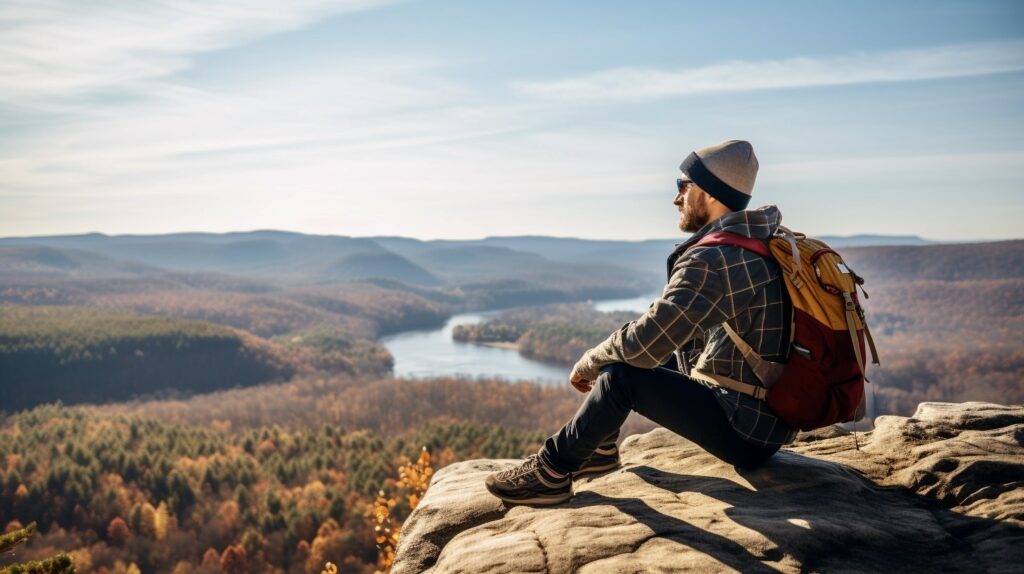
Let’s wrap up this solo camping journey with a powerful piece of wisdom that transcends gadgets and gear. When you’re out in the wild, away from the noise and the hustle of daily life, you’re in the perfect zone to embrace the solitude. Solo camping isn’t just about surviving; it’s about thriving in your own company. It’s a chance to be fully present in nature, appreciating the profound beauty of the wilderness in a way you’ve never experienced before.
The Beauty of Self-Discovery:
Solo camping isn’t just about conquering the wild; it’s about conquering yourself. It’s like that moment when you figure out a complex problem – the thrill of discovery. When you’re on your own, you’re pushed to your limits and discover strengths and abilities you never knew you had.
Mindfulness in Nature:
The wild is the ultimate teacher of mindfulness. Solo camping allows you to become one with nature, to appreciate the silence, the rustling leaves, and the whispers of the wind. It’s a break from the relentless buzz of modern life.
The Challenge of Solitude:
Embracing solitude is not always easy, as it can be full of challenges and unknowns. But as you conquer the challenges of solo camping, you’ll find a sense of peace and empowerment that’s truly transformative. It’s a journey into your own soul, a chance to connect with yourself on a profound level.
So, pack up your gear, hit the trail, and revel in the unique beauty and challenges that solo camping offers. Remember to embrace the solitude and let it be your guide to a deeper connection with the natural world and with yourself. It’s an adventure that’s both empowering and transformative, and it’s yours for the taking. Happy camping, everyone!

